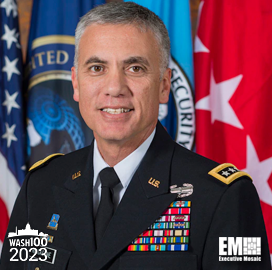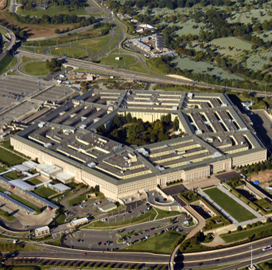Craig Martell, chief digital and artificial intelligence officer at the Department of Defense and a 2023 Wash100 Award recipient, said the U.S. must boost its data collection, analysis and labeling capabilities to stay ahead of China’s competitive AI efforts, DefenseNews reported Friday.
“If we’re going to beat China, and we have to beat China in AI, we have to find a way to label at scale. Because if we don’t label at scale, we’re not going to win,” Martell said during the Strategy and Warfare Center Symposium in Colorado.
Labeled data can train AI and machine learning systems with pattern recognition capabilities. Thus, data labeling for AI training and algorithmic models is key to ensuring that these systems work as intended.
“Fundamentally, at the bottom, we have to get the data right. On top of that, we have to get great analytics,” Martell said.
Data from the Government Accountability Office revealed that the Department of Defense had more than 685 AI projects, including several related to major weapons systems, as of early 2021.

Martell is set to speak at the Potomac Officer Club’s 4th Annual Artificial Intelligence Summit scheduled to take place on Feb. 16 in McLean, Virginia. Click here to register and join to learn about the federal government’s AI priorities and initiatives for 2023 and beyond.











